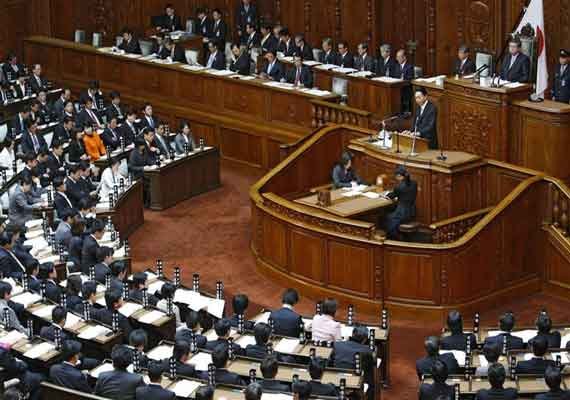
Tokyo: Japan's newly-elected lower house of representatives will have only 45 women among its 475 members, slightly more than the 38 it had in the previous legislature, according to results tallied on Monday of the Sunday's snap elections.
This number of women lawmakers accounts for barely 9.5 percent of parliament, representing a gain of scarcely 1.6 percent over those elected in the 2012 elections.
Japanese Prime Minister Shinzo Abe's conservative Liberal Democratic Party, which will remain in power after its resounding victory in Sunday's elections, will only have 24 women among its 291 representatives, a meagre 8.6 percent.
This is clearly below the target set by Abe to increase the presence of women in positions of responsibility to 30 percent by 2020.
These include former ministers Yuko Obuchi and Midori Matsushima who will hold a seat in parliament after resigning from their post as head of the ministries of trade, industry and energy and justice respectively.
Obuchi and Midori were two of the most prominent appointments in the new team that Abe announced in December with a view to increasing the presence of women.
However, barely a month after assuming their new portfolios, both ministers resigned over corruption charges.
The Japanese Communist Party has the highest representation of women, who occupy six out of the 21 seats it has won, almost a third of the total.
The presence of women in Japan's politics continues to be negligible.
Out of the 1,100 candidates who stood for elections this Sunday, only 198 of them were women.
Japan is ranked 123 on a list of 189 countries analysed in a study on women's parliamentary representation prepared in March by the Inter-Parliamentary Union.

















